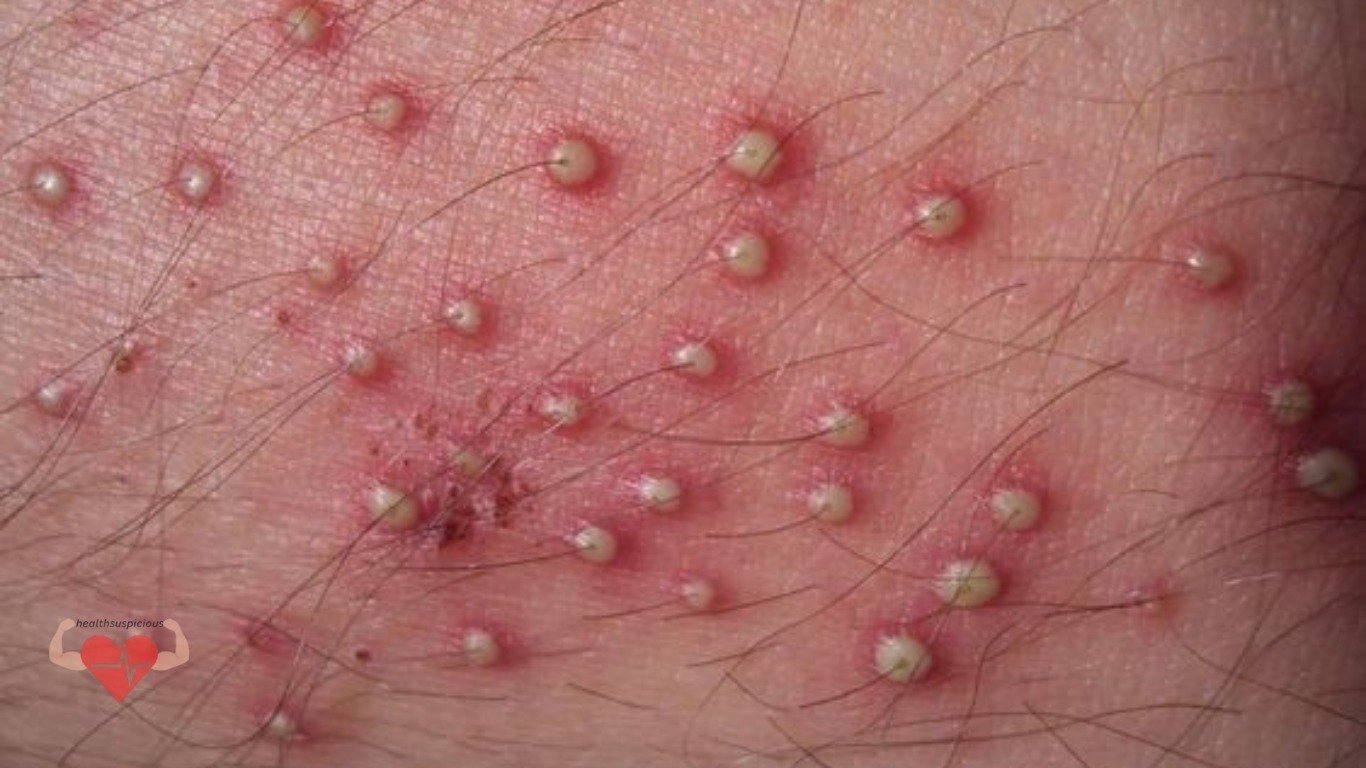Bacterial contaminations are sicknesses that can influence your skin, lungs, mind, blood and different pieces of your body. You get them from single-celled life forms duplicating or delivering poisons in your body. Normal bacterial sicknesses incorporate UTIs, food contamination, STIs and a few skin, sinus and ear diseases. They’re frequently treated with anti-infection agents.
Outline
What is a bacterial contamination?
Bacterial diseases are any ailment or condition brought about by bacterial development or toxic substances (poisons). You can become ill from getting unsafe microbes in your skin, stomach (GI plot), lungs, heart, mind, blood or elsewhere in your body.
Hurtful microorganisms from the climate, a tainted individual or creature, a bug chomp or something defiled (like food, water or surfaces) can cause diseases. Microscopic organisms that is not ordinarily hurtful however that gets into a spot in your body where it ought not be can likewise cause contaminations.
What is microorganisms?
Microscopic organisms are living things with just a solitary cell that can imitate rapidly. There are a large number of microorganisms that experience surrounding us — in soil or water and on surfaces in our homes and working environments. There are even large number of microscopic organisms that live on your skin and within your body.
Most microbes aren’t destructive, and many are even useful. They can assist you with processing food and kill off other destructive types of microscopic organisms that attempt to attack your body. In any case, even the supportive ones can hurt you on the off chance that they develop where they shouldn’t.
What’s the distinction between a bacterial contamination and viral disease?
Living, single-celled life forms that can recreate on their own objective bacterial contaminations. A couple of sorts of microscopic organisms cause disease in individuals.
An organic entity that is not comprised of cells causes viral diseases. Infections generally need to contaminate people or other living things to make more duplicates of itself.
Anti-infection agents can treat most bacterial diseases, yet a couple of viral contaminations have prescriptions that treat them.
What are the kinds of bacterial diseases?
Microorganisms can cause many kinds of diseases, contingent upon how you’re uncovered and which part of your body it contaminates. A few normal sorts of bacterial diseases include:
Food contamination (gastroenteritis).
Some skin, ear or sinus contaminations.
A few physically sent diseases (STIs).
Bacterial pneumonia.
Most urinary plot contaminations (UTIs).
What are a few instances of bacterial contaminations?
Normal bacterial diseases include:
Campylobacter and Salmonella diseases, normal sorts of food contamination.
Cellulitis, bubbles and impetigo, skin contaminations.
Pneumococcal sickness, including ear and sinus diseases and a few kinds of pneumonia.
Lyme infection, a sickness spread by ticks.
Bacterial vaginosis, an abundance of microorganisms in your vagina.
Chlamydia and gonorrhea, physically communicated diseases.
Strep throat, a bacterial disease normal in youngsters that causes an irritated throat.
C. diff, a contamination in your digestion tracts.
E. coli, a typical reason for urinary parcel contamination (UTI).
Is a bacterial contamination serious?
There are numerous bacterial contaminations that aren’t normally significant or can be dealt with effectively with anti-infection agents. Impetigo and bubbles are models. Nonetheless, any bacterial contamination that gets profound into your body, as in your blood, heart, lungs or mind, can life-compromise.
How do bacterial contaminations spread?
Bacterial diseases can spread through beads or residue in the air, immediate or backhanded contact, a vector (like a tick or mosquito) or polluted food or water (vehicular).
Airborne or drop
You can help bacterial diseases through the air from debased residue or drops of water or bodily fluid (like mucus or snot). Legionnaires’ sickness, pertussis (outshining hack), tuberculosis, meningococcal illness and strep throat spread along these lines.
Contact
You can get bacterial diseases from direct contact with tainted skin or mucous layers, or from backhanded contact with polluted surfaces. Bacterial sicknesses you get by contact incorporate skin contaminations and a few physically sent diseases (STIs) like gonorrhea and chlamydia.
Vector
Diseases you get from bugs (like mosquitos, ticks or insects) are called vector-borne. You can get Rough Mountain spotted fever, Lyme illness and shigellosis through vectors.
Vehicular
While it seems like something you get from your vehicle, “vehicular” as a rule implies you become ill from water or food (the “vehicle” of transmission). You can get stomach (gastrointestinal) diseases from E. coli, Campylobacter and Salmonella microorganisms in polluted food or water.
Who do bacterial sicknesses influence?
Anybody can get a bacterial illness, and a large portion of us will eventually in our lives. You’re at higher gamble for getting a disease on the off chance that you have:
Diabetes.
A debilitated safe framework (because of HIV/Helps, disease, malignant growth medicines or immunosuppressive meds).
A painful injury.
Had a medical procedure as of late.
How does a bacterial disease influence my body?
Microbes can hurt your body either when they imitate or by delivering harms (poisons) that harm your phones. Diseases that main influence the outer layer of your skin or mucous films (like your throat or digestion tracts) aren’t generally serious, however once in a while, microbes can spread in your body and cause hazardous sicknesses. Assuming microorganisms gets into your blood, it can cause sepsis, a response to the contamination that causes organ harm, which is at times deadly.
Side effects and Causes
What are normal side effects of a bacterial disease?
Side effects of bacterial contaminations differ contingent upon where in your body is tainted. The primary side effect is in many cases fever, aside from skin diseases, which generally cause redness or agony on your skin. Normal side effects of bacterial contaminations include:
Fever.
Chills.
Exhaustion (sleepiness).
Migraine.
Extra side effects can include:
Skin: Redness, rankles, ulcers, enlarged or agonizing skin.
GI parcel: The runs, stomach agony, sickness and spewing.
Lungs: Hack, windedness, chest agony and mucus (sputum).
Lining around your cerebrum (meningitis): Neck solidness, queasiness or retching, aversion to light and disarray.
In your circulation system and spreading (septicemia): High fever, shortcoming, perspiring and low circulatory strain.
Heart (endocarditis): High fever, chest torment, night sweats, windedness, hack, muscle and joint agony.
Urinary lot or private parts: Copying or agony when you pee, release from your penis or vagina, expanded need to pee and difficult intercourse.
What causes bacterial sicknesses?
Numerous sorts of microbes cause contaminations. You for the most part get bacterial diseases when microorganisms help into your body through your mouth, your nose, your eyes or a cut in your skin. Some of the time, microbes that typically live on your skin or in your body get into places they shouldn’t (like through a physical issue) and repeat.
How would you get a bacterial contamination?
Well known ways you can get bacterial contaminations include:
Eating or drinking tainted food or water.
Eating or drinking unpasteurized dairy items.
Anti-microbial use, which can dispense with the great microscopic organisms that typically fend off awful microorganisms.
From polluted surfaces.
From others (through hacking or close contact).
From getting tainted water into your lungs (suctioning).
Through oral, butt-centric or vaginal sex.
Through tainted soil (soil).
From a chomp from a contaminated tick, mosquito or insect.
From a medical procedure or intubation (tube in your throat).
Are bacterial contaminations infectious?
Indeed, numerous bacterial contaminations are infectious from one individual to another, including pertussis, tuberculosis, strep throat, meningococcal sickness, bacterial STIs and MRSA. Contaminations you get from food, mosquitos or ticks are generally not infectious.
Finding and Tests
How are bacterial contaminations analyzed?
A medical care supplier analyze a bacterial contamination by paying attention to your side effects, doing an assessment (paying attention to your heart and lungs, feeling your mid-region, taking a gander at your skin) and taking examples to test for microscopic organisms.
On the off chance that they think you have microbes in your lungs, cerebrum or other inward organ, they could get X-beams, ultrasound, X-ray or CT imaging to search for indications of contamination.
Tests for bacterial diseases
Your supplier could send body liquid or tissue tests to a lab to search for indications of a disease (antibodies or antigens). A lab professional could likewise attempt to develop microorganisms from your examples. Kinds of tests they could take include:
Skin or other impacted tissue.
Blood.
Mucus (sputum).
Liquid around your cerebrum and spinal rope (CNS liquid).
Pee (pee).
Liquid from your eye (emissions).
Crap (stool).
The executives and Treatment
How are bacterial diseases treated?
Not all bacterial contaminations should be dealt with — some disappear all alone. At the point when you truly do require treatment, medical services suppliers use anti-microbials. Contingent upon where your contamination is and the way that serious it is, anti-infection agents can be endorsed as:
Oral prescription (pills).
IV prescription, given to you at a specialist’s office or clinic straightforwardly into a vein.
Treatment or cream.
Eye drops.
Difficulties/symptoms of the treatment
Here and there, certain anti-toxins quit working and don’t kill or dial back microbes (anti-microbial opposition). Along these lines, specialists and medical caretaker experts are cautious about when and how they recommend anti-microbials. They possibly endorse them in the event that they think they’ll help you. You should accept any drug as recommended for the full course, regardless of whether you begin to feel much improved.
Avoidance
How might I forestall bacterial contaminations?
Ways of decreasing your gamble of different kinds of bacterial diseases include:
Get immunization. There are immunizations for the majority bacterial sicknesses, including lockjaw, outshining hack, diphtheria and microscopic organisms that cause specific types of meningitis (Neisseria meningitides), pneumonia (Streptococcus pneumoniae, Haemophilus influenzae type b) and circulatory system contaminations.
Practice great cleanliness. This incorporates keeping up with great hand-washing propensities, wearing perfect and dry garments and not imparting individual things to

